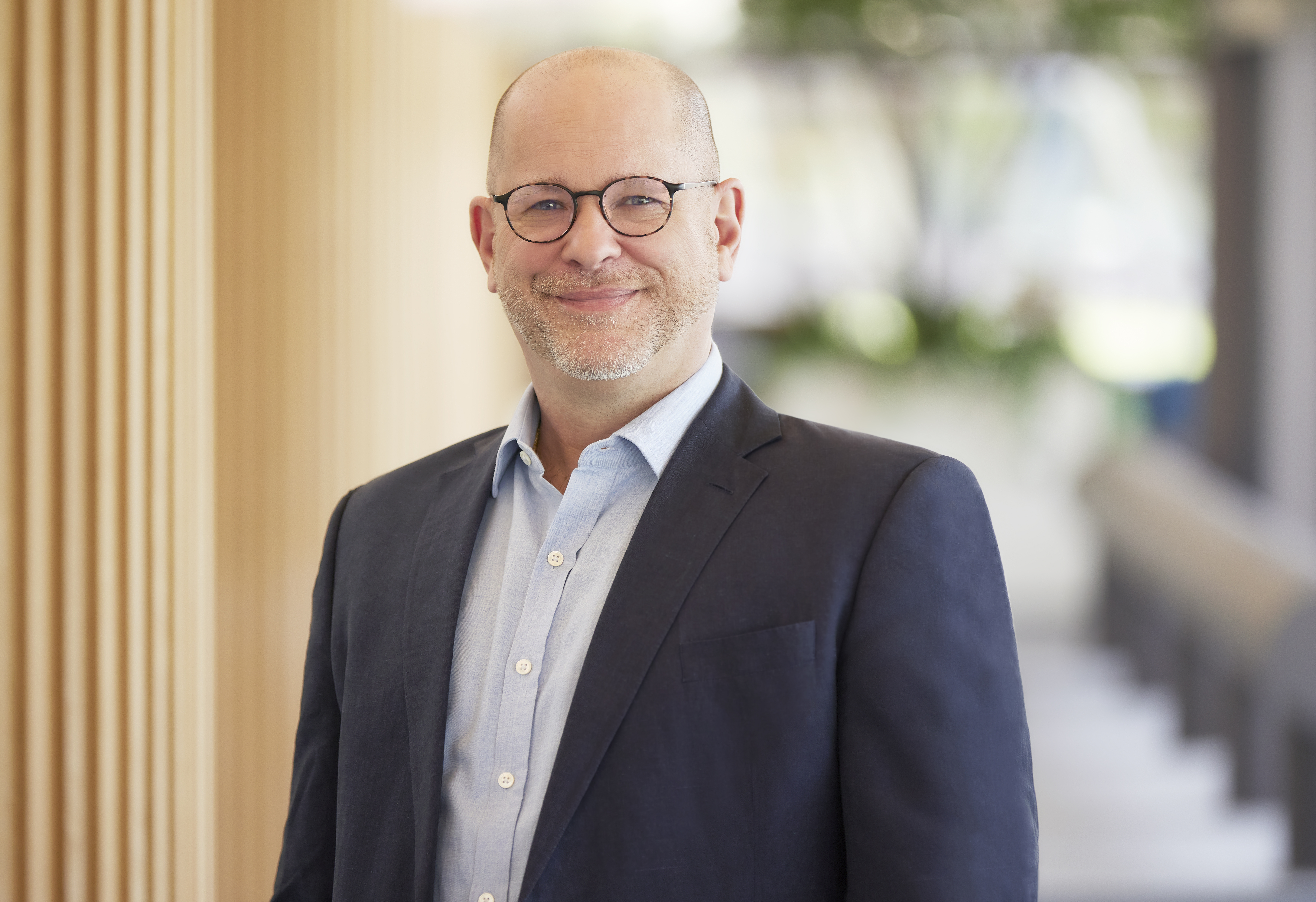Sean McCormack, MAIR '90
The energy company’s communications executive reflects on his time as a graduate student of international relations—and shares the experience that made all the difference
Sean McCormack, Vice President of Communications at Chevron, wasn’t one of those kids who knew how to answer the question “What do you want to be when you grow up?” For him, that answer came a bit later in life, when he decided to spend his junior year of college studying abroad in London.
“I was a kid who grew up in Maine, and this was the Stone Age,” joked McCormack. “There was no Internet when I was a kid, so it wasn’t until I went to London that I really realized that the world is a big, wide place with all different kinds of people doing all different kinds of things. I got to know kids whose parents were diplomats, and I became fascinated by international relations, international politics, and diplomacy, and I thought ‘Wow, this could be the thing that could be my passion.’”
At the end of his study abroad program, McCormack returned home and resumed his undergraduate studies in economics at Colby College. But, just before graduating with his bachelor’s degree in 1986, McCormack spoke to a professor about his desired change of plans. That professor told McCormack about the University of Maryland, College Park, its proximity to Washington, D.C., and its programs in international relations and public affairs. So, he decided to apply.
“I distinctly remember my parents calling me up and saying, ‘Hey, you got a letter from the University of Maryland. Do you want us to open it?’” recalled McCormack, who was a recent college graduate living in Paris and studying French at the time. “I told them yes, and they opened it up and said ‘You’ve been accepted to graduate school!’ I wish you could have recorded the wattage of my smile at the time; it would have lit up half the world.”
At Maryland, McCormack started taking classes in the Department of Government and Politics, and doing some administrative work for the School of Public Policy’s (SPP) Center for International and Security Studies at Maryland (CISSM), which was housed in Morrill Hall at that time. It was there that Catherine McArdle Kelleher, a founding faculty member of SPP and CISSM, struck up a conversation with McCormack and encouraged him to offer to help the researchers who were working just a few floors down on a program documenting the evolution of nuclear weapons.
Again, McCormack took a professor’s advice.
“I guess I did a good enough job [working with the nuclear history program’s researchers], because I ended up getting a fellowship the second half of my first year that carried over into my second year,” said McCormack. “You hear a lot of stories of people who say ‘I applied to the foreign service, but I had to go get a job,’ and so it never happens for them. But because people at the University of Maryland took a chance on me and believed in me—probably before I believed in myself—I was able to learn, to develop professionally, and earn a paycheck as well. That gave me the room and experiences I needed to end up getting my dream job, which was to be a U.S. diplomat. UMD helped me reach my dream.”
After receiving his M.A. in international relations from UMD in 1990, McCormack worked as a researcher for arms control consultants, took the foreign service exam—four times before passing, he admits—and successfully entered the U.S. Foreign Service in 1995. McCormack served in Ankara, Turkey and Algiers, Algeria.
McCormack returned to the Washington, D.C. area in 2001, and spent the next eight years working as the Deputy White House Press Secretary and spokesman for the National Security Council, and then as the Assistant Secretary of Public Affairs and spokesman for the U.S. Department of State.
During those years, McCormack’s daughter and son were born. And, because they were still relatively close to UMD’s campus, McCormack brought them back to campus for walks—and for Maryland Dairy ice cream, of course.
While his children were still young, McCormack decided to apply the communications skills he gained over the years to a new position as the vice president of communications for The Boeing Company in Washington, D.C. A few years later, McCormack and his family moved to Washington state, where he served as the lead communications official for Boeing Commercial Airplanes in Seattle.
Nearly a decade later, McCormack took a five-year break from corporate life to work as a managing director at TrailRunner International, a global communications consultancy. Then, when his children graduated from high school, he felt an “itch” to lead a team at a large organization again—in part because doing so, he says, gives him an opportunity to pay forward the career-launching experience he had at UMD.
“The thing I’ve always carried with me is the fact that a very senior, tenured professor stopped to notice the guy filing papers and took the time to really get to know him as a person, and that made all the difference,” said McCormack. “I believe it’s incumbent on me to do the same for others, so I take great satisfaction from helping develop talent in my organization. I enjoy taking an interest in people and helping them reach their full potential.”
In an effort to help current UMD students reach their full potential, McCormack offers this advice: “Follow your dreams and your passions, because if you do that, you're going to be better at what you do. Be curious, and always continue learning because it can open up opportunities you won’t ever see coming. And then the final thing is, treat people with dignity and respect. Look at them as individuals, as humans, and treat them as you would want to be treated. You'd be amazed at what just a single gesture can do.”

Published - February 9, 2024



